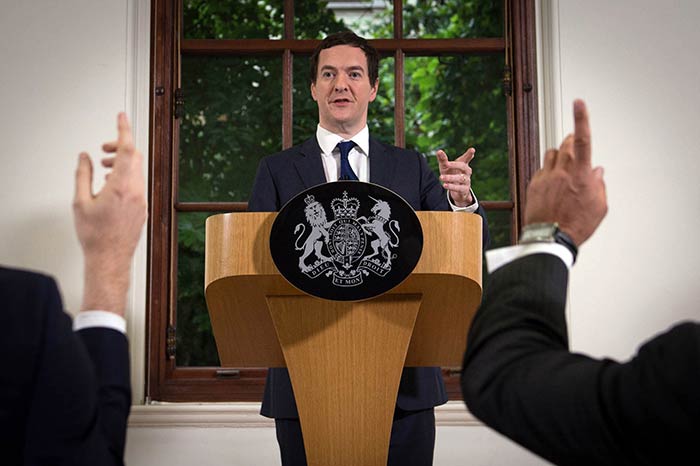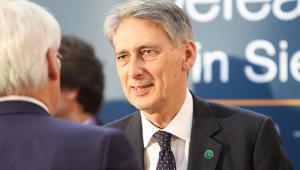
Photo: PA
In his first public comments following the Brexit vote and the decision of prime minster David Cameron to resign, the chancellor said “no one should doubt our resolve to maintain the fiscal stability we have delivered for this country”.
He added: “To all companies large and small I would say this: the British economy is fundamentally strong, we are highly competitive and we are open for business.”
Osborne said he wanted to reassure the country, and the global community, that Britain would face Brexit from a position of strength due to action taken since 2010 to reduce the deficit and boost the economy. As a result, growth has been robust, employment is at record levels and banks have higher capital requirements, he stated.
“I said we had to fix the roof so that we were prepared for whatever the future held. Thank goodness we did. As a result, our economy is about as strong as it could be to confront the challenge our country now faces.”
Following confirmation of the vote to leave, a fall in the value of the pound meant Britain was briefly overtaken by France as the world’s fifth largest economy.
Osborne said he had campaigned for a Remain vote, but the result must now be accepted.
“It is inevitable, after Thursday’s vote, that Britain’s economy is going to have to adjust to the new situation we find ourselves in.”
Action to address the impact of Brexit on the public finances would be required, he insisted, after warning in the campaign of the need for £30bn in tax rises and spending cuts.
“Given the delay in triggering Article 50 [the formal process to leave the EU] and the prime minister’s decision to hand over to a successor, it is sensible that decisions on what that action should consist of should wait for the Office for Budget Responsibility to assess the economy in the autumn, and for the new prime minister to be in place,” he added.
The Bank of England stands ready to provide £250bn of funds, through its normal facilities, to continue to support banks and the smooth functioning of markets, Osborne said.
He and BoE governor Mark Carney were in regular contact “and I can say this morning: we have further well-thought-through contingency plans if they are needed”, Osborne said.
Responding to the chancellor, CIPFA chief executive Rob Whiteman said Osborne had indicated the government will do what is necessary later in the year to remain on track with deficit reduction.
“So whilst public services will breathe a sigh of relief that there is no immediate emergency budget as warned before last Thursday, the message was clear that action will be taken under a new prime minister in the autumn if OBR reports that the economic conditions have worsened the position of our public finances,” he added. “For the numerous health trusts and councils with dire finances, this will feel like a stay of execution rather than a reprieve. And, given the falling markets we are seeing, there will also be some trepidation that the Chancellor may be forced to look at public finances before the new government is assembled."
In an economic analysis published on Friday, the Institute for Public Policy Research warned that an increase in inflation following the fall in the value of the pound would hit poorest families twice as hard as the richest.
Using Treasury modelling of currency shocks, IPPR finds that a 2.3% increase in the CPI measure of inflation will increase costs for the poorest households by 3.3%, compared to a 1.6% increase for the richest 10% of families.
Chief economist Catherine Colebrook said markets have responded to the news that the UK is to exit the EU by selling sterling assets, causing the pound to fall.
“This will be felt in higher costs on the high street in the coming months,” she added.
“The priority for the UK government now should be to work quickly to secure continued access to the single market – from an economic perspective this is the most important thing we can do to shore up confidence and avoid an economic blip becoming an all-out recession.”




















